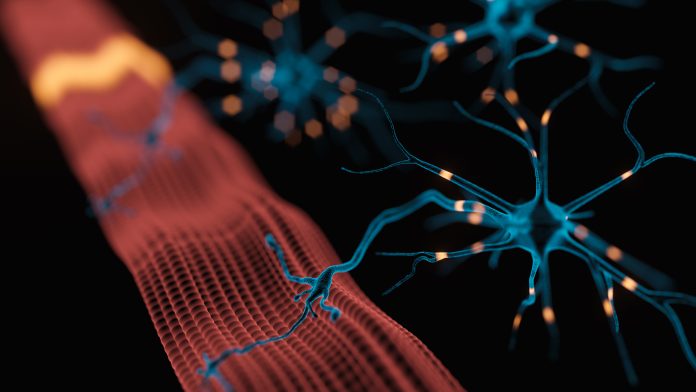
The autonomic nervous system also spontaneously restores muscle function following a nerve injury, according to MedUni Vienna.
The autonomic nervous system is responsible for involuntary bodily processes such as the beating of the heart and breathing. According to a research group at MedUni Vienna’s Department of Plastic, Reconstructive and Aesthetic Surgery, the autonomic nervous system can facilitate muscle function recovery. These findings may provide a basis for improving and developing interventions and treatments for nerve lesions.
The research was led by Vlad Tereshenko and Oskar Aszmann from the Clinical Laboratory for Bionic Limb Reconstruction at MedUni Vienna. The full study has been published in the Journal of Neuroscience.
Nerve damage can be permanent
During preclinical research on facial nerves and muscles, the researcher’s discovered this facet of the interaction between nerves and muscles. This is a brand-new discovery; such a function was previously unknown to scientists.
When a nerve is injured or severed, it is no longer able to control motor functions in the facial muscles. The researchers observed that these injuries caused facial paralysis in animal models.
The researchers observed spontaneous recovery of muscle function within a few days or weeks of the nerve lesion in some cases. By Using novel and complex techniques, the team were able to establish that the autonomic nervous system could take over the function of the injured nerves.
“Until now, we were unaware that the autonomic nervous system can control muscle motor function with nerve impulses. As we have seen in our experiments, the parasympathetic nerve fibres form new functional neuromuscular synapses to do this,” explained Tereshenko.
“At the same time, the patterns of the muscle fibres are modified and, hence, the physiological properties of the autonomously reinnervated muscles are changed,” he added.
The autonomic nervous system repair damaged nerves
Nerves can temporarily or permanently lose their ability to provide motor control to muscles, following certain injuries and diseases. Diseases such as Orthostatic Hypotension, Postprandial Hypotension and Multiple System Atrophy can cause motor damage. Previously established therapeutic concepts, such as the relocation of nerves and nerve transplants can be used to treat these motor defects.
However, clinical outcomes can be inhibited by a range of factors, such as the slow rate of nerve regeneration or poor availability of nerve donors.
“By identifying this previously unknown ability of the autonomic nervous system, we have discovered a new potential actor in nerve reconstruction. The results of our study can therefore help to improve existing therapeutic measures and to develop new ones,” said Tereshenko.
The researchers believe that follow-up studies can deepen our knowledge of this new facet of the neuromuscular system. The research team acknowledged that the question of whether autonomic nerve fibres can be surgically relocated to restore muscle function, either temporarily or permanently, still needs to be answered.







